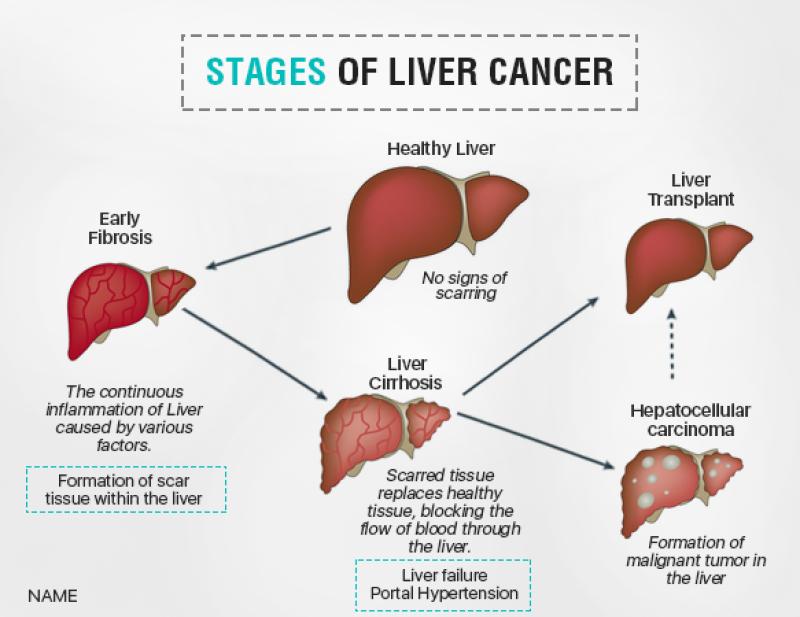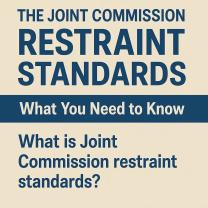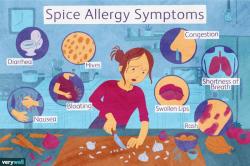What are the common symptoms of liver cancer?
Liver cancer often does not cause noticeable symptoms in its early stages. As the disease progresses, symptoms may become more apparent. It's important to note that these symptoms can also be associated with other liver conditions or health issues. Common symptoms of liver cancer include:
Unexplained Weight Loss: Sudden and unexplained weight loss is a common symptom of various cancers, including liver cancer.
Loss of Appetite: A reduced appetite or feeling full quickly after eating small amounts of food can be a symptom of liver cancer.
Abdominal Pain or Discomfort: Pain or discomfort in the upper abdomen, on the right side, may occur as a tumor grows and puts pressure on surrounding tissues.
Swelling or Enlargement of the Abdomen: Liver cancer can cause an enlarged liver, leading to swelling or a feeling of fullness in the abdomen.
Jaundice: Yellowing of the skin and eyes (jaundice) is a common sign of liver disorders, including liver cancer. It occurs when the liver is unable to process bilirubin effectively.
Fatigue: Persistent fatigue or weakness may be a symptom of liver cancer or other liver diseases.
Nausea and Vomiting: Nausea and vomiting may occur as a result of liver cancer affecting the normal functioning of the digestive system.
Changes in Stool Color: Light-colored or pale stools and dark urine may be signs of liver dysfunction.
Itchy Skin: Pruritus, or itching of the skin, can be associated with liver disorders, including liver cancer.
Joint Pain: Pain in the joints may occur as a result of the spread of cancer to other parts of the body.
It's important to emphasize that these symptoms are not exclusive to liver cancer and can be caused by various other conditions. Additionally, some individuals with liver cancer may not experience noticeable symptoms until the disease has reached an advanced stage.
Risk factors for liver cancer include chronic infection with hepatitis B or C viruses, cirrhosis (scarring of the liver), excessive alcohol consumption, non-alcoholic fatty liver disease, and certain genetic conditions.
If you are experiencing persistent or worsening symptoms, especially if you have risk factors for liver cancer, it is crucial to consult with a healthcare professional for a thorough evaluation, diagnosis, and appropriate management. Early detection and intervention can improve outcomes for individuals with liver cancer.
Sure, here are the answers to your questions:
What are the early signs and symptoms of liver cancer?
Liver cancer is a serious condition that can develop in anyone, but it is most common in people over the age of 50. In the early stages, liver cancer may not cause any noticeable symptoms. However, as the cancer progresses, it can cause a variety of signs and symptoms, including:
Unexplained weight loss: Losing weight without trying is a common sign of liver cancer. This is because liver cancer can cause the body to lose muscle mass and fat.
Loss of appetite: Liver cancer can also cause a loss of appetite. This is because the liver helps to produce bile, which is a fluid that helps to digest fats. When the liver is not functioning properly, it may not be able to produce enough bile, which can lead to a loss of appetite.
Jaundice: Jaundice is a yellowing of the skin and eyes. It is caused by a buildup of bilirubin, a waste product that is produced by the liver. Jaundice is a common sign of liver cancer, but it can also be caused by other conditions such as hepatitis or gallstones.
Abdominal swelling: Liver cancer can cause the liver to enlarge, which can lead to abdominal swelling. This swelling may be accompanied by pain or discomfort.
Pain in the abdomen: Pain in the abdomen is a common symptom of liver cancer. The pain may be located in the upper right side of the abdomen, where the liver is located. The pain may be sharp or dull, and it may come and go.
Nausea and vomiting: Nausea and vomiting are also common symptoms of liver cancer. These symptoms may be caused by the cancer itself, or they may be caused by other conditions such as hepatitis or gallstones.
Fatigue: Liver cancer can cause fatigue, which is a feeling of tiredness or lack of energy. This fatigue may be caused by the cancer itself, or it may be caused by other conditions such as anemia or malnutrition.
Dark urine: Dark urine can be a sign of liver cancer. This is because the liver helps to remove waste products from the body, including bilirubin. When the liver is not functioning properly, bilirubin can build up in the blood, which can cause the urine to turn dark.
Pale stool: Pale stool can also be a sign of liver cancer. This is because the liver helps to produce bile, which is a fluid that helps to digest fats. When the liver is not functioning properly, it may not be able to produce enough bile, which can cause the stool to turn pale.
How is liver cancer diagnosed and detected?
There are several tests and procedures that can be used to diagnose and detect liver cancer. These include:
Blood tests: Blood tests can be used to check for elevated levels of liver enzymes, which can be a sign of liver damage.
Imaging tests: Imaging tests such as ultrasound, CT scans, and MRI scans can be used to create pictures of the liver and look for tumors.
Biopsy: A biopsy is a procedure that involves removing a small sample of liver tissue for examination under a microscope. This is the only definitive way to diagnose liver cancer.
What treatment options are available for liver cancer?
The treatment options for liver cancer depend on the stage of the cancer and the overall health of the patient. Some of the common treatment options include:
Surgery: Surgery is the most common treatment for early-stage liver cancer. The goal of surgery is to remove the tumor and any surrounding cancerous tissue.
Liver transplantation: Liver transplantation is a surgical procedure that involves removing the diseased liver and replacing it with a healthy liver from a donor.
Ablation: Ablation is a procedure that uses heat, cold, or radiofrequency waves to destroy cancer cells.
Chemotherapy: Chemotherapy is the use of drugs to kill cancer cells. Chemotherapy can be given as pills, injections, or through a catheter.
Radiation therapy: Radiation therapy uses high-energy rays to kill cancer cells. Radiation therapy can be given externally, from a machine outside the body, or internally, through a catheter placed inside the body.
Targeted therapy: Targeted therapy uses drugs that target specific molecules on cancer cells. This type of therapy is less likely to harm healthy cells than chemotherapy or radiation therapy.
The best way to determine the best treatment option for liver cancer is to talk to a doctor. They will be able to assess the individual case and recommend the most appropriate treatment plan.













